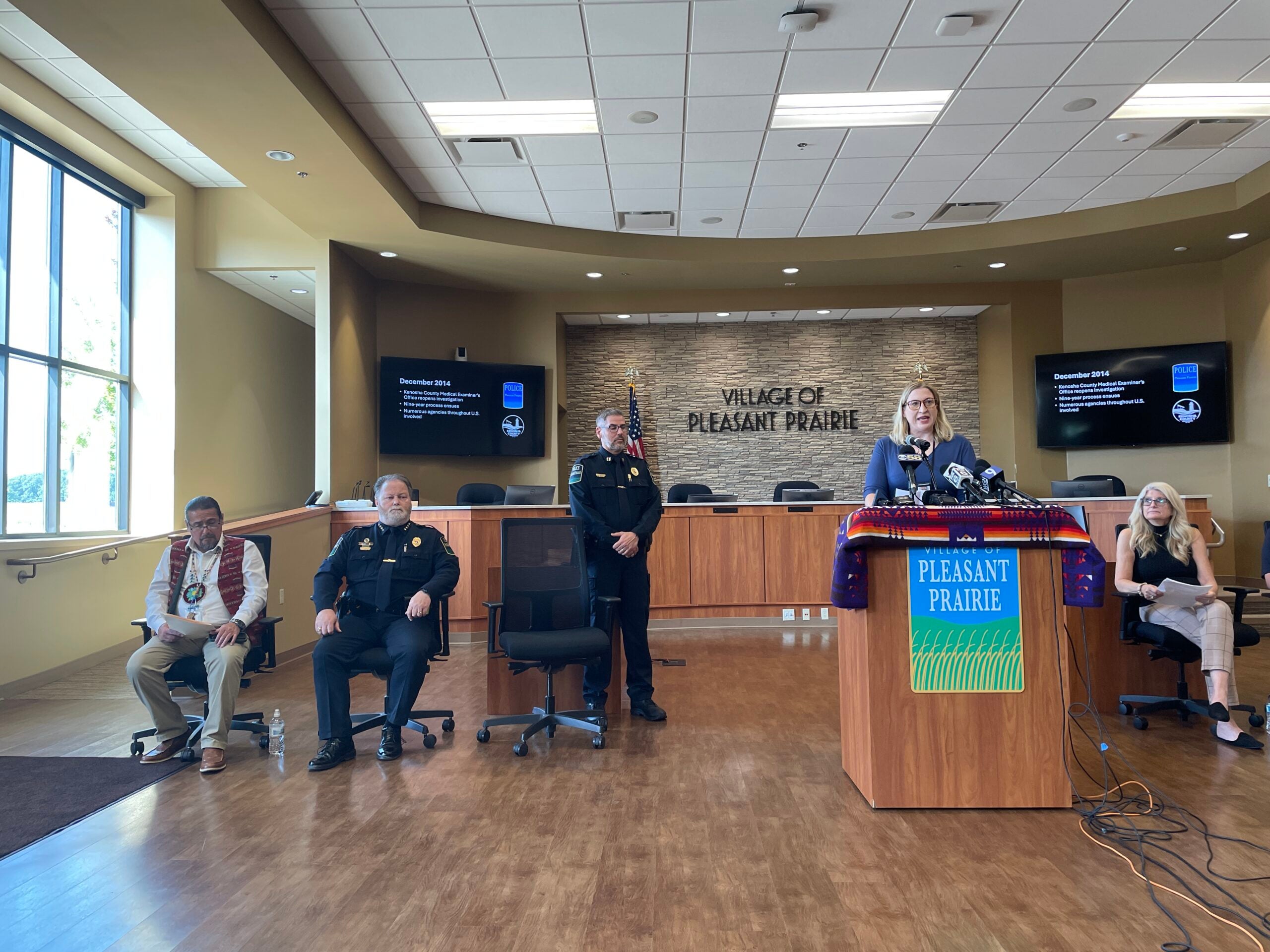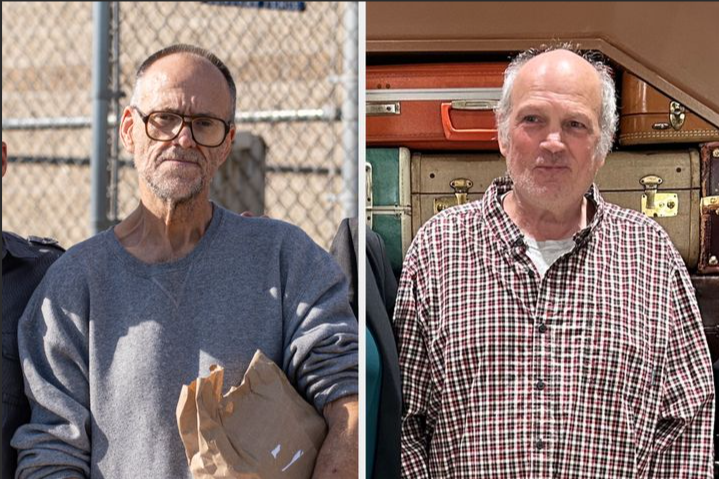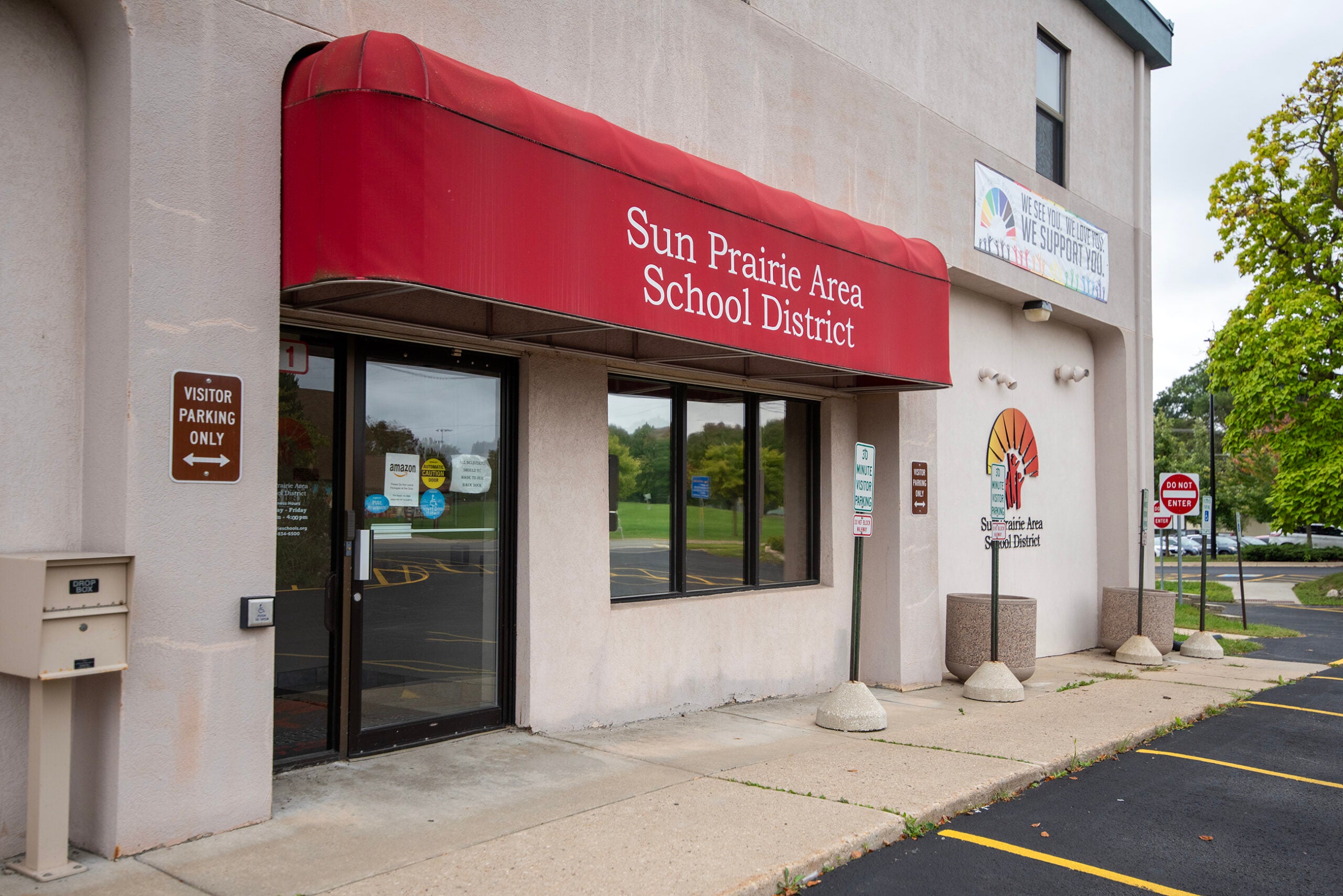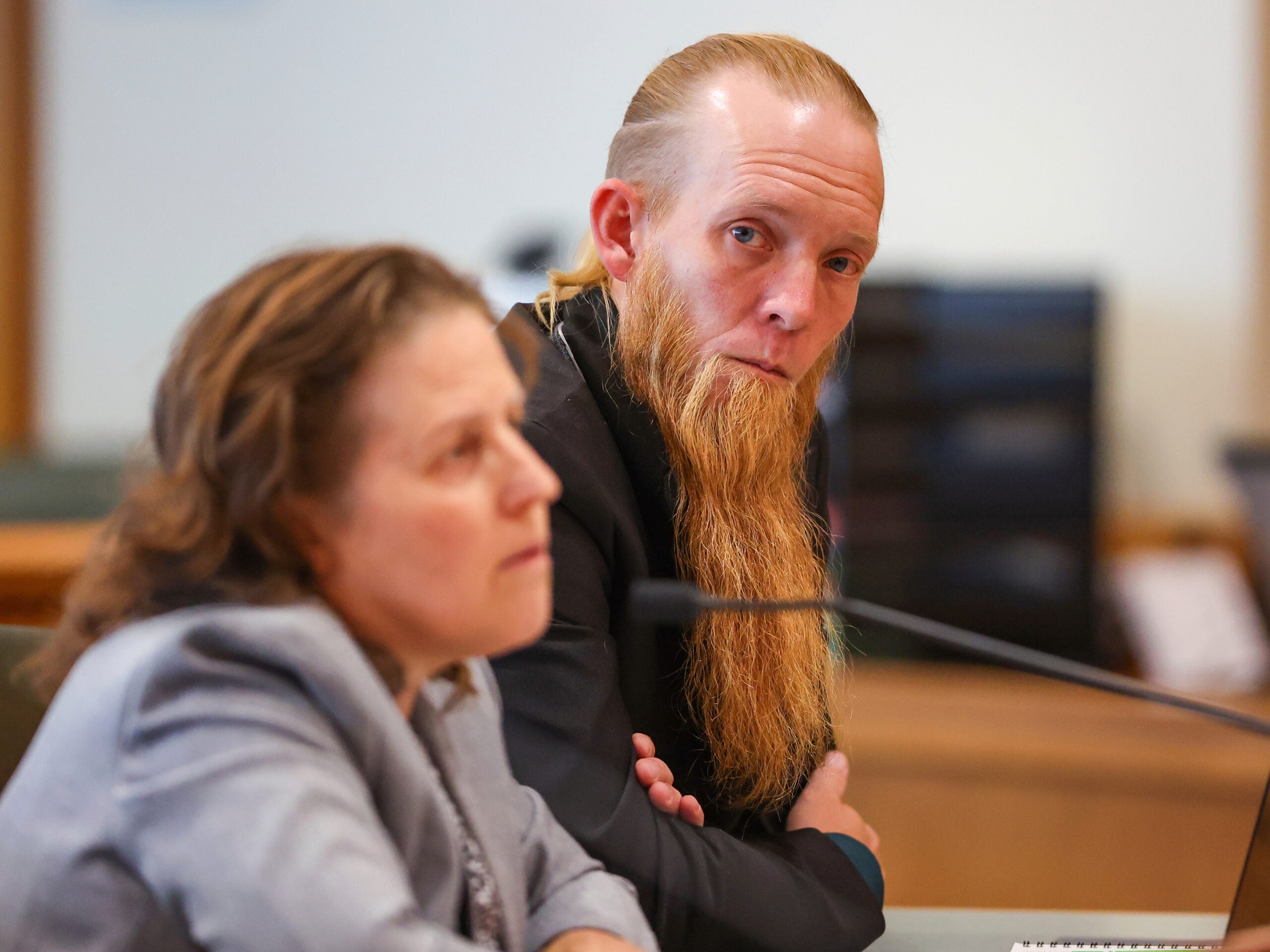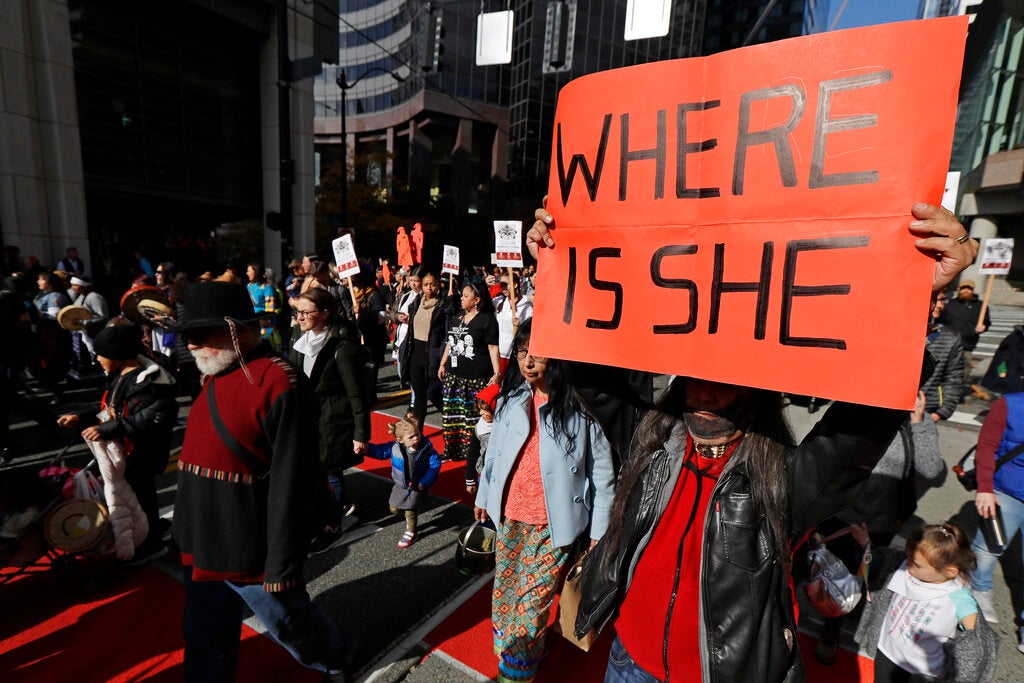On Aug. 27, 1993, a group of hobby photographers found a body along the Canadian Pacific railroad tracks in Pleasant Prairie, near the Illinois state line in Kenosha County.
The dead man had extensive head wounds. Police believed his death was a homicide. But they could not identify him, despite his distinctive tattoo featuring leaves, panther claws and a snake.
He was buried as a John Doe at St. John’s Cemetery in Randall.
News with a little more humanity
WPR’s “Wisconsin Today” newsletter keeps you connected to the state you love without feeling overwhelmed. No paywall. No agenda. No corporate filter.
Thirty-one years later, he has finally been identified. His name was Ronald Louis Dodge, and he was born on Dec. 27, 1952 in Keshena, on the Menominee Indian Reservation.
At the time of his death, Dodge was likely living on the north side of Chicago with his wife, Kathryn Erickson. New testing has determined he was likely killed by gunshot wound.
On Tuesday, representatives of Kenosha County, the Pleasant Prairie Police Department, the National Missing and Unidentified Persons System, the DNA Doe Project and the Menominee Indian Tribe of Wisconsin held a press conference at Pleasant Prairie Village Hall to announce Dodge’s identification.
“In my almost 20-year career in working in death investigation, Ronald’s case has proven to be the most difficult to solve,” said Kenosha County Medical Examiner Patrice Hall. “I am humbled to have the honor of giving Ronald his name back, returning his remains to his family and giving the Dodge family the answers that they have been looking for for all these years.”
A long road to identification
Hall has special interest in identifying John Doe victims. She revived the investigation in 2014 after learning police detectives had kept the John Doe’s skull as evidence.
“The artifacts from the case were transferred to the medical examiner for further testing, all in hopes of identifying the remains of the deceased individual,” Pleasant Prairie Police Chief David Smetana said.
The medical examiner’s office sent specimens to the University of North Texas Center for Human Identification in 2015. The next year, the center’s forensic anthropologist Wendy McQuade determined the victim was of Native American, Hispanic or Caucasian descent.
In 2017, the Michigan State Police Crime Lab reconstructed Dodge’s skull and created digital renderings of his face that were released to the public. The Smithsonian Institution analyzed the isotopes in Dodge’s remains the same year.
“That didn’t really help us, because the answers were a really big area of the United Sates, so it didn’t help us narrow anything down,” Hall said of the isotope analysis.
Hall’s office began working with the DNA Doe Project in 2018. Robin Espensen, investigative genetic genealogist team leader at the project, said it took her team over three years of lab work to generate a DNA profile for Dodge. They uploaded the profile to two databases.
“Once uploaded, we realized Kenosha John Doe was Native American, a population extremely underrepresented in the DNA databases,” Espensen said.
Using a combination of genealogy and DNA analysis, Espensen’s team managed to find some of Dodge’s ancestors and trace a family tree back into the present, including some possible distant relatives of Dodge.
“We then shared some of our closer matches with Patrice [Hall], and she made contact and shared his reconstruction photo. It was not long before a close family member came forward,” Espensen said.
That family member was Dodge’s brother, who definitively confirmed Dodge’s identity by providing his own DNA sample.
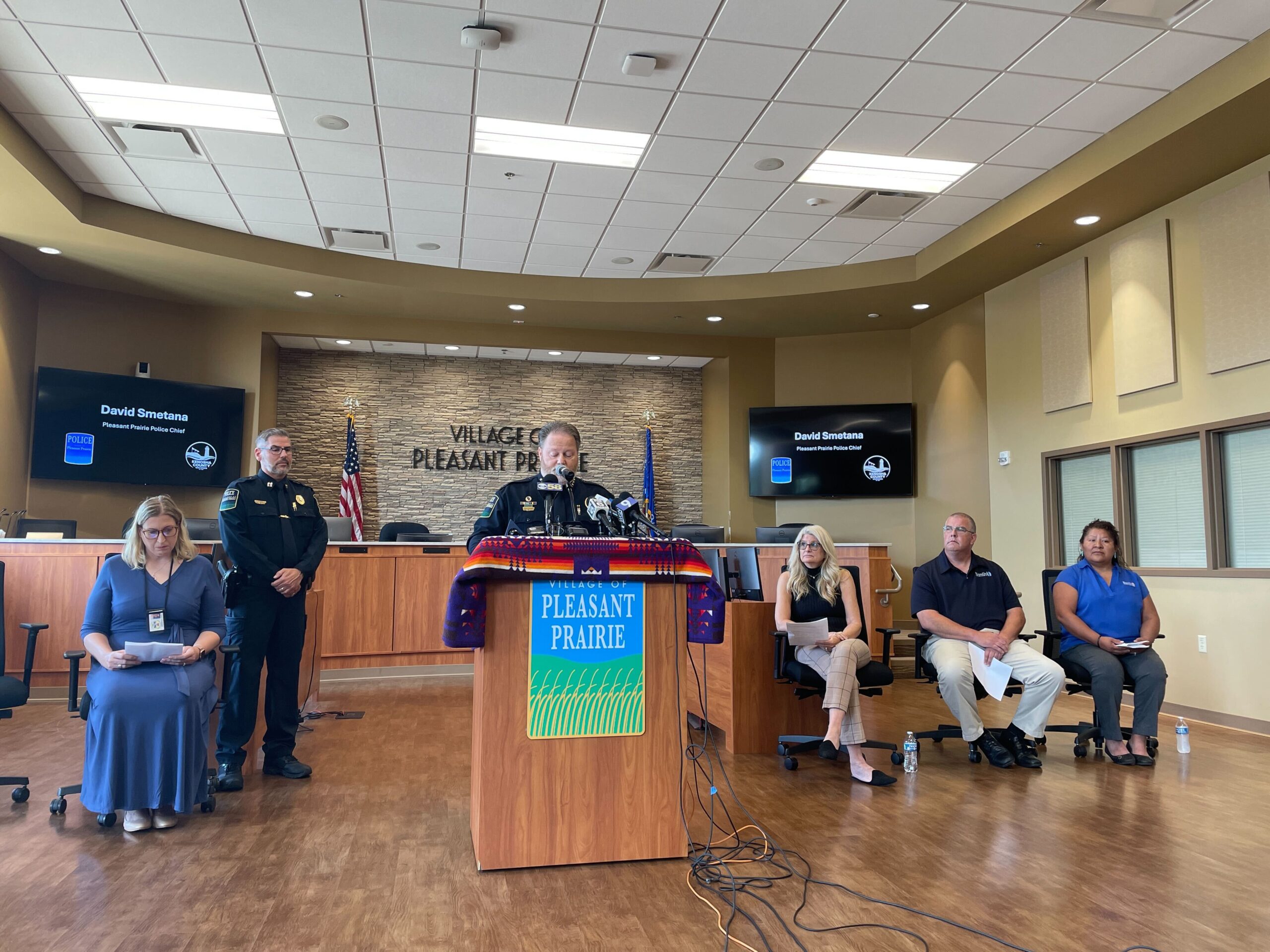
Homicide investigation reopened
Police Chief Smetana said Dodge’s homicide is now an open investigation.
“The important part is now we know who this individual is. We know where he came from, we know where he frequented and we know where he ended up: here in Pleasant Prairie. So that’s where the investigation will start,” Smetana said.
Smetana encouraged anyone “along the way from Menominee Indian Reservation down to Chicago” to share any recollections they have of Dodge.
“As in any police investigation, once you start developing leads, those leads lead to additional information,” Smetana said.
Asked about the possibility that Dodge was murdered in Chicago before having his body left in Pleasant Prairie, Smetana said he expects “outstanding cooperation” with police departments in Illinois if that’s the case.
“It’s difficult to give odds. I’m not a gambling man,” Smetana said. “All my hope is in my team, and the team that you’ve seen amass here today. So I think that moving forward, I’ve got high hopes that we’re gonna bring justice to the Dodge family and have a successful conclusion on this case.”
A sense of closure
Menominee Tribal Vice Chair Joey Awonohopay read aloud a letter written by Dodge’s family members for the press conference.
“It’s been over 30 years of searching and wondering, worrying and praying about Ronnie and his well-being. It came to a point where hope seemed to be lost. His loved ones began to believe that we would never know what became of him,” Awonohopay read.
The family thanked the Pleasant Prairie police and the medical examiner’s office, and wrote that Dodge has been “laid to rest amongst his relatives, home on the Menominee Reservation.”
Awonohopay also read a statement from the Menominee tribal leadership.
“For far too long, violence inflicted upon our citizens has been overlooked, their stories often forgotten or ignored. But not today,” the statement said.
Dodge was the fourth John Doe identified in Kenosha County under Hall’s leadership, and the second cold case victim.
Asked about what drives her to solve cold cases, Hall said she is simply passionate.
“Everybody deserves to have their name returned to him. As I mentioned, I’ve been an investigator for almost 20 years, and it’s just something in me,” Hall said. “I just keep going. I just keep going until I get the answer. That’s how I operate.”
“I transported Ronald in June to the funeral home, met with his family. And it was an honor. It was an honor to be able to help them and learn about Ronald, and learn about his family and bring them some closure,” Hall said, visibly emotional.
The Pleasant Prairie Police Department encourages anyone with possible tips or leads to contact them at 262-948-8910 or tips@pleasantprairiewi.gov. Those wishing to submit anonymous tips can call Kenosha Area Crime Stoppers 262-656-7333 or 800-807-8477.
Wisconsin Public Radio, © Copyright 2025, Board of Regents of the University of Wisconsin System and Wisconsin Educational Communications Board.

